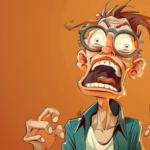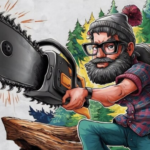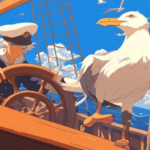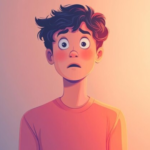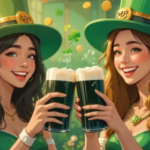What if learning science could feel like solving a mystery instead of reading a textbook? That’s exactly what happens with Science Lab Riddles. These clever, brain-teasing puzzles take the world of science and transform it into a playground for curiosity. You’re not just memorizing formulas or facts; you’re cracking codes, finding clues, and uncovering how science works in everyday life. Science Lab Riddles bring together two amazing things: knowledge and imagination. They make chemistry, physics, and biology more exciting by turning them into fun riddles anyone can enjoy. Whether you’re a student trying to make sense of your lessons, a teacher looking to energize your class, or simply a lover of trivia and brain games, these riddles add a spark to your scientific thinking. Let’s dive deeper into what makes Science Lab Riddles such a unique and entertaining learning tool.
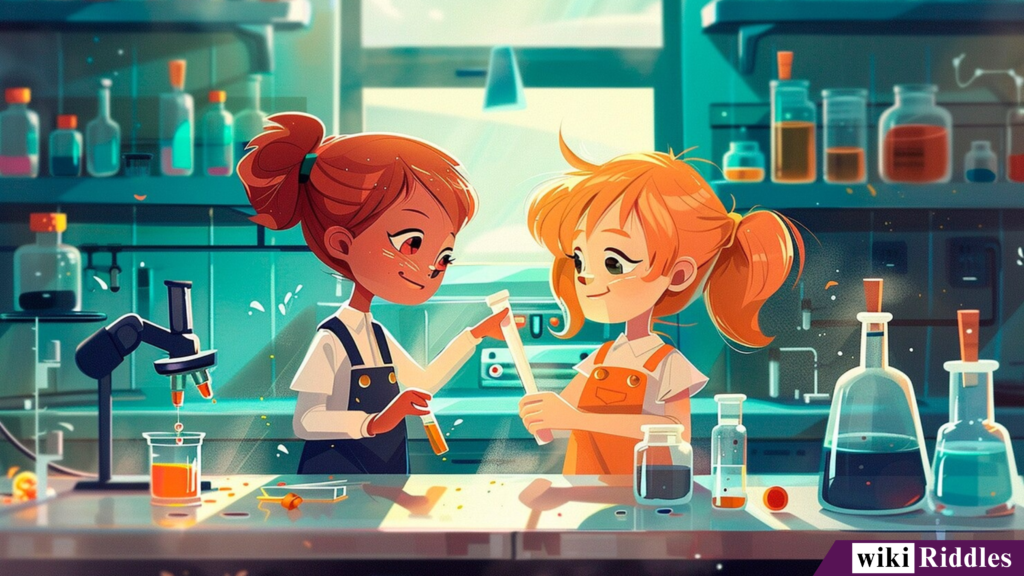
250+ “Science Lab Riddles” with Answers
Chemical Compounds & Reactions
- Riddle: I bubble and fizz when mixed with vinegar, yet I’m just a common white powder. What am I?
Answer: Baking soda. - Riddle: I can turn blue litmus red, but I’m not angry. What am I?
Answer: An acid. - Riddle: I’m formed when hydrogen meets oxygen in a perfect pair. What am I?
Answer: Water. - Riddle: I’m a change that cannot be reversed, often involving heat and gas. What am I?
Answer: A chemical reaction. - Riddle: I make iron cry rusty tears when I meet it in the air. What am I?
Answer: Oxygen. - Riddle: Mix me with sugar and I make your drink sparkle. What am I?
Answer: Carbon dioxide. - Riddle: I’m made when sodium and chlorine bond happily. What am I?
Answer: Table salt. - Riddle: When substances meet, I decide whether they combine or repel. What am I?
Answer: Chemical affinity. - Riddle: I can change color when I detect a base or acid. What am I?
Answer: An indicator. - Riddle: I’m the study of substances, changes, and reactions. What am I?
Answer: Chemistry.
Famous Scientists
- Riddle: I watched apples fall and thought of the universe. Who am I?
Answer: Isaac Newton. - Riddle: I lit up the world with my inventions and created the first light bulb. Who am I?
Answer: Thomas Edison. - Riddle: I discovered the laws of motion and gravity. Who am I?
Answer: Isaac Newton. - Riddle: I sailed on the Beagle and spoke of evolution. Who am I?
Answer: Charles Darwin. - Riddle: I’m known for E=mc². Who am I?
Answer: Albert Einstein. - Riddle: I discovered penicillin by accident. Who am I?
Answer: Alexander Fleming. - Riddle: I explored radioactivity and won two Nobel Prizes. Who am I?
Answer: Marie Curie. - Riddle: I studied electricity by flying a kite in a storm. Who am I?
Answer: Benjamin Franklin. - Riddle: I made the first vaccine to stop smallpox. Who am I?
Answer: Edward Jenner. - Riddle: I changed science by inventing calculus and studying optics. Who am I?
Answer: Isaac Newton.
Laboratory Equipment
- Riddle: I measure liquids with marks up my side. What am I?
Answer: A graduated cylinder. - Riddle: I’m where reactions bubble and boil safely. What am I?
Answer: A beaker. - Riddle: I hold tiny samples for heating or mixing. What am I?
Answer: A test tube. - Riddle: I help you see the smallest living things. What am I?
Answer: A microscope. - Riddle: I keep your hands safe from chemicals. What am I?
Answer: Safety gloves. - Riddle: I’m used to measure mass, not weight. What am I?
Answer: A balance scale. - Riddle: I can transfer small drops of liquid precisely. What am I?
Answer: A pipette. - Riddle: I spin samples fast to separate their parts. What am I?
Answer: A centrifuge. - Riddle: I heat things using a bright blue flame. What am I?
Answer: A Bunsen burner. - Riddle: I protect your eyes from splashes and spills. What am I?
Answer: Safety goggles.
Physics Phenomena
- Riddle: I make things fall, yet keep planets in orbit. What am I?
Answer: Gravity. - Riddle: I’m the invisible push or pull that makes things move. What am I?
Answer: Force. - Riddle: I travel through air and let you hear your favorite song. What am I?
Answer: Sound wave. - Riddle: I can be stored in a spring or moving car. What am I?
Answer: Energy. - Riddle: I make light bend when it enters water. What am I?
Answer: Refraction. - Riddle: I keep moving unless stopped by another force. What am I?
Answer: Inertia. - Riddle: I’m the cause of electric shocks and lightning bolts. What am I?
Answer: Electricity. - Riddle: I can lift an airplane and hold it in the sky. What am I?
Answer: Lift. - Riddle: I’m invisible but carry energy and warmth from the sun. What am I?
Answer: Radiation. - Riddle: I’m the rate at which something changes position. What am I?
Answer: Speed.
Biology & Life Science
- Riddle: I’m the smallest unit of life. What am I?
Answer: A cell. - Riddle: I carry your genetic information. What am I?
Answer: DNA. - Riddle: I’m the green part of a plant that makes food from sunlight. What am I?
Answer: A leaf. - Riddle: I pump blood through your body. What am I?
Answer: The heart. - Riddle: I’m a tiny organism that can cause sickness. What am I?
Answer: A bacterium. - Riddle: I’m the process where plants make food using light. What am I?
Answer: Photosynthesis. - Riddle: I’m the system that controls your thoughts and movement. What am I?
Answer: The nervous system. - Riddle: I carry oxygen through your body in red form. What am I?
Answer: Red blood cells. - Riddle: I’m the part of a flower that makes seeds. What am I?
Answer: The ovary. - Riddle: I’m a group of organs working together for one purpose. What am I?
Answer: An organ system.
Astronomy & Space
- Riddle: I’m the star that gives Earth light and life. What am I?
Answer: The Sun. - Riddle: I orbit Earth and control the tides. What am I?
Answer: The Moon. - Riddle: I’m a rock that travels through space and sometimes burns up in Earth’s sky. What am I?
Answer: A meteor. - Riddle: I’m made of ice and dust with a shining tail. What am I?
Answer: A comet. - Riddle: I’m the biggest planet in our solar system. What am I?
Answer: Jupiter. - Riddle: I’m the red planet known for my dusty surface. What am I?
Answer: Mars. - Riddle: I’m the collection of stars that forms our cosmic home. What am I?
Answer: The Milky Way. - Riddle: I’m a giant explosion that marks a star’s end. What am I?
Answer: A supernova. - Riddle: I pull everything toward me, even light itself. What am I?
Answer: A black hole. - Riddle: I’m a space station where astronauts live and work. What am I?
Answer: The International Space Station.
Periodic Table Puzzles
- Riddle: I’m the lightest element in the universe. What am I?
Answer: Hydrogen. - Riddle: I help balloons float and never react with others. What am I?
Answer: Helium. - Riddle: I’m the element we breathe to survive. What am I?
Answer: Oxygen. - Riddle: I’m used to make strong bones and found in milk. What am I?
Answer: Calcium. - Riddle: I’m a shiny yellow metal used in jewelry. What am I?
Answer: Gold. - Riddle: I’m a gas that glows red-orange in signs. What am I?
Answer: Neon. - Riddle: I’m soft, silvery, and explode in water. What am I?
Answer: Sodium. - Riddle: I’m used to fill pencils, not pens. What am I?
Answer: Carbon. - Riddle: I protect you from cavities in toothpaste. What am I?
Answer: Fluorine. - Riddle: I’m the heaviest naturally occurring element. What am I?
Answer: Uranium.
States of Matter
- Riddle: I have a fixed shape and volume. What am I?
Answer: A solid. - Riddle: I take the shape of my container but not its volume. What am I?
Answer: A liquid. - Riddle: I fill any space completely. What am I?
Answer: A gas. - Riddle: I’m created when heat turns a solid into a liquid. What am I?
Answer: Melting. - Riddle: I’m the opposite of melting. What am I?
Answer: Freezing. - Riddle: I turn directly from a solid to gas. What am I?
Answer: Sublimation. - Riddle: I exist in stars and lightning bolts. What am I?
Answer: Plasma. - Riddle: I’m the process when a gas becomes a liquid. What am I?
Answer: Condensation. - Riddle: I’m the invisible form of water in the air. What am I?
Answer: Water vapor. - Riddle: I describe how matter changes from one form to another. What am I?
Answer: Change of state.
Electricity & Magnetism
- Riddle: I travel through wires to make things shine, but I’m invisible to the eye. What am I?
Answer: Electricity. - Riddle: I can push or pull without touching, and I’m strongest near my poles. What am I?
Answer: Magnet. - Riddle: I’m the flow of electric charge through a circuit. What am I?
Answer: Current. - Riddle: I’m measured in volts and make the current move. What am I?
Answer: Voltage. - Riddle: I resist the flow of current in a circuit. What am I?
Answer: Resistance. - Riddle: I’m made when electricity and a magnetic field dance together. What am I?
Answer: Electromagnetism. - Riddle: I spin inside a generator to make electricity. What am I?
Answer: A coil. - Riddle: I stop too much current from flowing by melting. What am I?
Answer: A fuse. - Riddle: I can power your flashlight when stored in a battery. What am I?
Answer: Chemical energy. - Riddle: I attract metal objects but not wood or glass. What am I?
Answer: Magnetic field.
Light & Optics
- Riddle: I travel in straight lines but bend when I hit water. What am I?
Answer: Light. - Riddle: I’m a tool that helps you see tiny objects using lenses. What am I?
Answer: Microscope. - Riddle: I split white light into seven colors. What am I?
Answer: A prism. - Riddle: I’m what happens when light bounces back from a surface. What am I?
Answer: Reflection. - Riddle: I’m what happens when light changes direction through glass. What am I?
Answer: Refraction. - Riddle: I can be seen when sunlight meets raindrops. What am I?
Answer: A rainbow. - Riddle: I let you focus on nearby or faraway things. What am I?
Answer: A lens. - Riddle: I’m the dark shape that forms when light is blocked. What am I?
Answer: A shadow. - Riddle: I let you see your face every morning. What am I?
Answer: A mirror. - Riddle: I’m the fastest traveler in the universe. What am I?
Answer: Light.
Scientific Tools & Measurements
- Riddle: I measure how hot or cold something is. What am I?
Answer: Thermometer. - Riddle: I measure how heavy an object is. What am I?
Answer: Balance scale. - Riddle: I measure the length of things in centimeters or inches. What am I?
Answer: Ruler. - Riddle: I measure time with precision in experiments. What am I?
Answer: Stopwatch. - Riddle: I measure how much space a liquid takes up. What am I?
Answer: Graduated cylinder. - Riddle: I measure gas pressure inside containers. What am I?
Answer: Pressure gauge. - Riddle: I measure electric current in circuits. What am I?
Answer: Ammeter. - Riddle: I measure the strength of magnets or electric fields. What am I?
Answer: Gaussmeter. - Riddle: I’m used to see tiny details on a specimen. What am I?
Answer: Microscope. - Riddle: I help you record and analyze experimental data. What am I?
Answer: Computer.
Forensic Science
- Riddle: I reveal your identity using unique loops and whorls. What am I?
Answer: Fingerprint. - Riddle: I match DNA to a person to solve crimes. What am I?
Answer: DNA analysis. - Riddle: I can tell where someone’s been by the soil on their shoes. What am I?
Answer: Trace evidence. - Riddle: I help identify what’s in a mysterious white powder. What am I?
Answer: Chemical test. - Riddle: I can show when a person last ate based on their stomach contents. What am I?
Answer: Forensic pathology. - Riddle: I compare bullets to match them to a weapon. What am I?
Answer: Ballistics. - Riddle: I examine tiny hair strands to find clues. What am I?
Answer: Microscopic analysis. - Riddle: I capture evidence with a lens, not a pen. What am I?
Answer: Forensic photography. - Riddle: I detect lies by measuring heartbeat and sweat. What am I?
Answer: Polygraph. - Riddle: I find clues where others see only chaos. What am I?
Answer: Forensic scientist.
Ecology & Environmental Science
- Riddle: I’m a community of living and nonliving things interacting. What am I?
Answer: Ecosystem. - Riddle: I keep our air clean by turning carbon dioxide into oxygen. What am I?
Answer: Tree. - Riddle: I describe the gradual change in living things over time in an area. What am I?
Answer: Ecological succession. - Riddle: I’m the gas that traps heat in Earth’s atmosphere. What am I?
Answer: Carbon dioxide. - Riddle: I’m caused by cutting down too many trees. What am I?
Answer: Deforestation. - Riddle: I’m the variety of life on Earth. What am I?
Answer: Biodiversity. - Riddle: I’m pollution that affects the air we breathe. What am I?
Answer: Smog. - Riddle: I’m energy that comes from sunlight, not fossil fuels. What am I?
Answer: Solar energy. - Riddle: I melt ice and raise the oceans as Earth gets warmer. What am I?
Answer: Global warming. - Riddle: I’m the practice of using resources wisely for the future. What am I?
Answer: Conservation.
Anatomy & Physiology
- Riddle: I pump blood all day without rest. What am I?
Answer: Heart. - Riddle: I’m the control center of the human body. What am I?
Answer: Brain. - Riddle: I help you breathe in oxygen and out carbon dioxide. What am I?
Answer: Lungs. - Riddle: I’m the bones that give your body structure. What am I?
Answer: Skeleton. - Riddle: I carry messages between your brain and body. What am I?
Answer: Nerves. - Riddle: I break down food to give your body energy. What am I?
Answer: Stomach. - Riddle: I’m the part of your body that moves bones. What am I?
Answer: Muscle. - Riddle: I filter waste from your blood. What am I?
Answer: Kidney. - Riddle: I cover your body and protect what’s inside. What am I?
Answer: Skin. - Riddle: I’m the liquid that carries nutrients and oxygen through your body. What am I?
Answer: Blood.
Genetics & Evolution
- Riddle: I carry the code that makes you who you are. What am I?
Answer: DNA. - Riddle: I’m a segment of DNA that decides your traits. What am I?
Answer: Gene. - Riddle: I’m what you inherit from your parents. What am I?
Answer: Genetic traits. - Riddle: I’m the process that changes species over time. What am I?
Answer: Evolution. - Riddle: I’m a chart that predicts genetic outcomes. What am I?
Answer: Punnett square. - Riddle: I’m a sudden change in DNA that can alter a trait. What am I?
Answer: Mutation. - Riddle: I’m the man who studied pea plants to learn inheritance. Who am I?
Answer: Gregor Mendel. - Riddle: I’m the process where the fittest survive and reproduce. What am I?
Answer: Natural selection. - Riddle: I show how living things are related through ancestry. What am I?
Answer: Evolutionary tree. - Riddle: I’m the study of how traits pass from parents to offspring. What am I?
Answer: Genetics.
Microbiology
- Riddle: I’m so small you need a microscope to see me. What am I?
Answer: Microorganism. - Riddle: I’m a single-celled organism that can make you sick. What am I?
Answer: Bacterium. - Riddle: I’m not alive but can invade living cells. What am I?
Answer: Virus. - Riddle: I help make yogurt and cheese through fermentation. What am I?
Answer: Bacteria. - Riddle: I can cause mold on bread and grow in damp places. What am I?
Answer: Fungus. - Riddle: I’m the study of tiny life forms. What am I?
Answer: Microbiology. - Riddle: I’m used in vaccines to train your immune system. What am I?
Answer: A weakened virus. - Riddle: I help plants absorb nutrients by living on their roots. What am I?
Answer: Microbe. - Riddle: I’m killed by antibiotics, but viruses are not. What am I?
Answer: Bacteria. - Riddle: I’m the invisible world beneath the microscope. What am I?
Answer: Microbial life.
Geology & Earth Science
- Riddle: I’m made of layers and cover the planet’s surface. What am I?
Answer: Earth’s crust. - Riddle: I’m melted rock that erupts from volcanoes. What am I?
Answer: Lava. - Riddle: I shake the ground when tectonic plates move. What am I?
Answer: Earthquake. - Riddle: I’m water, wind, or ice wearing away rocks. What am I?
Answer: Erosion. - Riddle: I’m a hard, solid form of minerals. What am I?
Answer: Rock. - Riddle: I’m the process that turns sediments into stone. What am I?
Answer: Lithification. - Riddle: I’m a scientist who studies rocks and minerals. What am I?
Answer: Geologist. - Riddle: I float on the mantle and form continents. What am I?
Answer: Tectonic plate. - Riddle: I store fresh water underground. What am I?
Answer: Aquifer. - Riddle: I’m the planet that provides all the minerals we mine. What am I?
Answer: Earth.
Laboratory Safety
- Riddle: I protect your eyes from splashes. What am I?
Answer: Safety goggles. - Riddle: I’m worn on your hands to keep chemicals off your skin. What am I?
Answer: Gloves. - Riddle: I protect your clothes from spills and stains. What am I?
Answer: Lab coat. - Riddle: I should never be tasted or touched during experiments. What am I?
Answer: Chemicals. - Riddle: I must be tied back to prevent accidents. What am I?
Answer: Long hair. - Riddle: I’m where you go to rinse your eyes in an emergency. What am I?
Answer: Eye wash station. - Riddle: I’m used to put out fires quickly in the lab. What am I?
Answer: Fire extinguisher. - Riddle: I’m a label that warns you about danger. What am I?
Answer: Hazard symbol. - Riddle: I’m the rule that says “no running or horseplay.” What am I?
Answer: Lab safety rule. - Riddle: I’m the first thing to remember before starting any experiment. What am I?
Answer: Safety first.
Thermodynamics
- Riddle: I move from hot to cold and never the other way unless you make me. What am I?
Answer: Heat. - Riddle: I’m the measure of how hot or cold something is. What am I?
Answer: Temperature. - Riddle: I’m the device used to turn heat into mechanical work. What am I?
Answer: Heat engine. - Riddle: I’m the rule that says energy can’t be created or destroyed. What am I?
Answer: The first law of thermodynamics. - Riddle: I’m the state reached when heat stops flowing between two objects. What am I?
Answer: Thermal equilibrium. - Riddle: I’m the process that transfers heat through direct contact. What am I?
Answer: Conduction. - Riddle: I’m the flow of heat through fluids by movement. What am I?
Answer: Convection. - Riddle: I’m the only way heat travels through empty space. What am I?
Answer: Radiation. - Riddle: I measure how well a material resists heat flow. What am I?
Answer: Thermal resistance. - Riddle: I make engines less efficient because I always increase. What am I?
Answer: Entropy.
Scientific Method
- Riddle: I start with a question and end with understanding. What am I?
Answer: The scientific method. - Riddle: I’m an educated guess tested by experiments. What am I?
Answer: Hypothesis. - Riddle: I’m what scientists do to gather data and find results. What am I?
Answer: Experiment. - Riddle: I’m what you change to see how it affects something else. What am I?
Answer: Independent variable. - Riddle: I’m what you measure during an experiment. What am I?
Answer: Dependent variable. - Riddle: I’m the group that stays the same for comparison. What am I?
Answer: Control group. - Riddle: I’m the process of examining data to find meaning. What am I?
Answer: Analysis. - Riddle: I’m the final explanation based on all the evidence. What am I?
Answer: Conclusion. - Riddle: I’m what scientists share so others can repeat the test. What am I?
Answer: Results. - Riddle: I’m the reason discoveries are reliable and repeatable. What am I?
Answer: Observation and testing.
Robotics & Engineering
- Riddle: I follow instructions step by step without getting tired. What am I?
Answer: Robot. - Riddle: I’m the brain that tells a robot what to do. What am I?
Answer: Computer program. - Riddle: I sense the world using light, touch, or sound. What am I?
Answer: Sensor. - Riddle: I’m the part of a robot that moves its body. What am I?
Answer: Motor. - Riddle: I’m the person who designs machines to solve problems. What am I?
Answer: Engineer. - Riddle: I’m the process engineers use to plan, build, test, and improve. What am I?
Answer: Engineering design process. - Riddle: I’m the power that keeps robots and machines running. What am I?
Answer: Electricity. - Riddle: I’m a mechanical system that mimics human movement. What am I?
Answer: Robotic arm. - Riddle: I’m the combination of creativity and logic that builds inventions. What am I?
Answer: Engineering. - Riddle: I’m a robot that can learn from experience. What am I?
Answer: Artificial intelligence robot.
Quantum & Particle Physics
- Riddle: I’m the tiniest piece of matter, invisible to the naked eye. What am I?
Answer: Atom. - Riddle: I’m found in the nucleus and carry a positive charge. What am I?
Answer: Proton. - Riddle: I’m the particle that carries a negative charge. What am I?
Answer: Electron. - Riddle: I’m neutral and live in the center of the atom. What am I?
Answer: Neutron. - Riddle: I’m the mysterious link between energy and matter. What am I?
Answer: Quantum. - Riddle: I can be both a wave and a particle at the same time. What am I?
Answer: Light. - Riddle: I’m the theory that explains the weird behavior of tiny particles. What am I?
Answer: Quantum mechanics. - Riddle: I’m the smallest particle that makes up light. What am I?
Answer: Photon. - Riddle: I’m a particle so fast that I barely have mass and pass through everything. What am I?
Answer: Neutrino. - Riddle: I’m the particle physicists call the “God particle.” What am I?
Answer: Higgs boson.
Weather & Climate
- Riddle: I’m tiny drops of water that fall from the clouds. What am I?
Answer: Rain. - Riddle: I’m frozen rain that piles up in winter. What am I?
Answer: Snow. - Riddle: I’m air moving quickly across the land. What am I?
Answer: Wind. - Riddle: I’m the invisible vapor that forms clouds. What am I?
Answer: Water vapor. - Riddle: I make the air spin in circles during a storm. What am I?
Answer: Tornado. - Riddle: I’m a swirling giant storm over the ocean. What am I?
Answer: Hurricane. - Riddle: I make loud booms when lightning strikes. What am I?
Answer: Thunder. - Riddle: I’m a dry period when rain refuses to fall. What am I?
Answer: Drought. - Riddle: I describe the average weather over many years. What am I?
Answer: Climate. - Riddle: I measure air pressure to help forecast storms. What am I?
Answer: Barometer.
Time & Measurement
- Riddle: I tell you how long things take. What am I?
Answer: Time. - Riddle: I measure seconds, minutes, and hours. What am I?
Answer: Clock. - Riddle: I measure how fast something moves. What am I?
Answer: Speedometer. - Riddle: I measure distance traveled by a car. What am I?
Answer: Odometer. - Riddle: I measure how tall or long something is. What am I?
Answer: Measuring tape. - Riddle: I measure how heavy an object is. What am I?
Answer: Scale. - Riddle: I measure the smallest units of time for experiments. What am I?
Answer: Stopwatch. - Riddle: I measure the speed of light or sound precisely. What am I?
Answer: Laser timer. - Riddle: I keep time so accurately that scientists rely on me. What am I?
Answer: Atomic clock. - Riddle: I help compare things by quantity, length, or duration. What am I?
Answer: Measurement.
Inventions & Discoveries
- Riddle: I light up rooms and changed how people see at night. What am I?
Answer: Light bulb. - Riddle: I make voices travel across the world in seconds. What am I?
Answer: Telephone. - Riddle: I let humans fly high in the sky. What am I?
Answer: Airplane. - Riddle: I make it possible to explore the internet. What am I?
Answer: Computer. - Riddle: I was discovered by Alexander Fleming and save lives. What am I?
Answer: Penicillin. - Riddle: I was invented to see faraway objects in the night sky. What am I?
Answer: Telescope. - Riddle: I helped humans step onto the Moon. What am I?
Answer: Rocket. - Riddle: I carry energy through wires to power homes. What am I?
Answer: Electricity. - Riddle: I make it possible to talk without cords. What am I?
Answer: Mobile phone. - Riddle: I was discovered when gravity met an apple. What am I?
Answer: The law of gravity.
What Are Science Lab Riddles?
Science Lab Riddles are puzzles based on scientific concepts, terms, or observations. They can be simple or complex, but their main goal is always the same: to make people think about science in a fun and creative way. For example, here’s a simple one:
Riddle: I’m not alive, but I can grow. I don’t have lungs, but I need air. What am I?
Answer: Fire.
This riddle makes you think scientifically. You consider the characteristics of living and non-living things, the role of oxygen, and how fire “behaves.” It’s clever, educational, and entertaining all at once. Science Lab Riddles are becoming popular in classrooms, online quizzes, and science fairs because they make abstract concepts easier to understand. Instead of memorizing what combustion means, you explore it through a riddle. The learning feels natural and engaging.
The Connection Between Science and Riddles
At their core, both science and riddles share a powerful bond: curiosity. Both start with a question. Scientists ask, “Why does this happen?” and riddles ask, “What am I?” In both cases, you need to observe, think critically, and draw logical conclusions. When you solve a riddle, your brain goes through a process similar to the scientific method:
- Observe the question carefully.
- Form a hypothesis or guess.
- Test that guess by thinking through clues.
- Arrive at a conclusion or answer.
That’s exactly how scientific discovery works. This is why Science Lab Riddles are not just fun; they’re mental exercises that strengthen your scientific reasoning skills. They teach you how to look at problems from multiple angles just like a scientist in a lab.
Why Science Lab Riddles Are Great Learning Tools
Traditional learning can sometimes make science feel rigid or overwhelming. But when you introduce riddles, something magical happens. Students start enjoying the subject because they’re playing with ideas rather than just studying them. Here’s why Science Lab Riddles are powerful educational tools:
- They encourage curiosity. Riddles make students ask “why” and “how,” which are the foundations of scientific thinking.
- They boost critical thinking. To solve a riddle, you have to analyze every clue, discard wrong answers, and connect ideas logically.
- They make learning memorable. You’re more likely to remember something that made you laugh or think creatively.
- They build confidence. Solving a tricky riddle gives students a sense of achievement.
- They promote teamwork. Discussing riddles in groups improves communication and collaboration skills.
Teachers often use riddles as warm-up exercises, group activities, or review games before exams. The results are impressive students stay more engaged and motivated to learn.
Types of Science Lab Riddles
Science is vast, and so are the riddles inspired by it. Here are the main types of Science Lab Riddles you’ll come across, each focusing on a different area of study.
- Chemistry Riddles
Chemistry riddles are full of wordplay involving elements, compounds, and reactions. They make the periodic table come alive.
Example:
I am in water and air, but if I touch you directly, you’ll be in despair. What am I?
Answer: Acid.
This type of riddle helps learners connect chemistry concepts to real-world examples while keeping things lighthearted.
- Physics Riddles
Physics riddles deal with motion, energy, light, sound, and the laws that govern the universe. They often use everyday situations to represent scientific ideas.
Example:
I move without legs. I roar without a mouth. You can feel me but never see me. What am I?
Answer: Sound waves.
These riddles test your grasp of physical phenomena and make you visualize forces in action.
- Biology Riddles
Biology riddles focus on living organisms, cells, anatomy, and the natural world. They often personify biological processes in fun ways.
Example:
I have keys but no locks. I have space but no room. You can enter but can’t go outside. What am I?
Answer: A cell membrane.
This type of riddle makes abstract biological terms easier to understand by using relatable imagery.
- General Science Riddles
These cover a mix of topics like astronomy, earth science, or environmental studies. They’re great for mixed-level learning.
Example:
I’m bright but not a bulb. I rise and set but never move from my place. What am I?
Answer: The Sun.
Examples of Science Lab Riddles and Their Answers
Let’s explore a few interesting Science Lab Riddles with explanations to see how fun and educational they can be.
Chemistry Riddles
- Riddle: I’m everywhere but can’t be seen. I make things fall but never push them up. What am I?
Answer: Gravity. - Riddle: The more you take from me, the bigger I get. What am I?
Answer: A hole.
Explanation: It demonstrates the concept of space and absence in physical terms.
Biology Riddles
- Riddle: I’m red but not a rose. I move through your body and help it grow. What am I?
Answer: Blood. - Riddle: I eat sunlight for breakfast and exhale what you inhale. What am I?
Answer: A plant.
Explanation: Refers to photosynthesis, a key biological process.
General Science Riddles
- Riddle: I’m round, I orbit, and I’m full of life. What am I?
Answer: Earth. - Riddle: I have no life but can die. I can move without muscles and speak without words. What am I?
Answer: A robot.
How to Create Your Own Science Lab Riddles
Creating Science Lab Riddles is a creative process that anyone can master. Here’s how you can make your own:
- Choose a topic. Pick a scientific idea like magnetism, evaporation, or DNA.
- List its characteristics. What makes it unique? Is it invisible, strong, or reactive?
- Find a fun twist. Use metaphors, personification, or wordplay to describe it indirectly.
- Hide the answer cleverly. A good riddle should be solvable but not too easy.
- Test your riddle. Try it on friends or students to see if it challenges them.
Example:
Concept: Electricity
Riddle: I run through wires but have no legs. I can shock you, but I’m not alive. What am I?
Answer: Electricity.
This creative exercise enhances both science knowledge and linguistic skills.
Using Science Lab Riddles in Education
Teachers and educators have discovered that Science Lab Riddles are not just for fun; they are powerful teaching tools. Here are several ways they can be integrated into learning environments:
- Class Warm-Ups: Start the day with a riddle to energize students and get them thinking scientifically.
- Group Competitions: Divide the class into teams and host riddle challenges.
- Homework Fun: Add one riddle to each assignment to make studying enjoyable.
- Science Fairs: Use riddles as clues in scavenger hunts or project displays.
- Interactive Learning: Combine riddles with experiments or demonstrations.
When students solve riddles, they don’t just memorize facts; they engage with science on a deeper level.
Benefits of Solving Science Lab Riddles
Engaging with Science Lab Riddles brings a range of educational and psychological benefits:
- Improved Critical Thinking: Riddles require logical reasoning and observation, skills essential in science.
- Better Memory Retention: Associating knowledge with fun makes it easier to remember.
- Creativity Boost: Riddles encourage imaginative thinking and problem-solving.
- Stronger Communication Skills: Discussing and explaining riddles enhances articulation.
- Stress Relief: The playful nature of riddles makes learning relaxing and enjoyable.
In short, riddles transform learning into an experience rather than a task.
Science Lab Riddles for Different Age Groups
- For Kids
Children love simple and visual riddles.
Example: I’m small and busy, I make honey and buzz around. What am I?
Answer: A bee.
- For Teens
Teenagers enjoy riddles that mix logic and humor.
Example: I’m invisible but I let you hear your favorite song. What am I?
Answer: Sound waves.
- For Adults
Adults prefer riddles that challenge advanced concepts.
Example: I am both a wave and a particle. What am I?
Answer: Light.
By adjusting the difficulty, Science Lab Riddles can captivate any audience.
How Science Lab Riddles Inspire Real Scientific Thinking
Solving riddles mirrors how scientists think. Both involve curiosity, observation, experimentation, and discovery. Riddles encourage learners to think beyond memorization and develop an analytical mindset. When students engage in riddles, they learn how to question everything, connect unrelated ideas, and test their logic. This mental framework is what leads to true scientific understanding and innovation.
Common Mistakes When Solving Science Lab Riddles
Even though riddles seem simple, people often make mistakes that stop them from finding the answer. Here are a few to watch out for:
- Overcomplicating the question. Sometimes, the answer is straightforward.
- Ignoring clues in wording. Every word in a riddle matters.
- Not thinking scientifically. Apply logic and facts instead of random guesses.
- Rushing through it. Like science experiments, riddles need patience and observation.
Approaching riddles like a scientist helps improve both your accuracy and your appreciation for the question itself.
Fun Ways to Share Science Lab Riddles
There are countless creative ways to share and enjoy Science Lab Riddles:
- Post daily riddles on social media platforms and challenge friends.
- Use them in science clubs or family game nights.
- Include them in newsletters or educational blogs.
- Organize a riddle competition during science week.
- Add them to classroom walls as “Riddle of the Day.”
Sharing riddles spreads curiosity and turns science into a community experience.
Conclusion
Science is full of mysteries and these 250+ Science Lab riddles with answers prove just how fun learning can be! Whether you’re a student testing your knowledge, a teacher adding excitement to the classroom, or simply a curious mind who loves a good challenge, these riddles are sure to spark your imagination. From chemistry concoctions to physics puzzles, every riddle brings a little “Eureka!” moment.
If you enjoyed these scientific teasers, you’ll love diving into another mind-bending collection: 250+ “Laptop Riddles” with Answers (Tricky & Smart) a perfect follow-up for tech and logic enthusiasts alike!
FAQs
Q. What are Science Lab Riddles?
Science Lab Riddles are puzzles based on scientific facts and principles that make learning interactive and fun.
Q. Are Science Lab Riddles suitable for all ages?
Yes, they can be customized for kids, teenagers, or adults based on difficulty levels.
Q. How can teachers use Science Lab Riddles in class?
Teachers can use them as warm-ups, group activities, or part of quizzes to encourage engagement.
Q. What skills do Science Lab Riddles improve?
They enhance logic, creativity, communication, and memory retention.
Q. Can I create my own Science Lab Riddles?
Absolutely! All you need is a scientific concept, creativity, and clever phrasing to make your own riddles.

